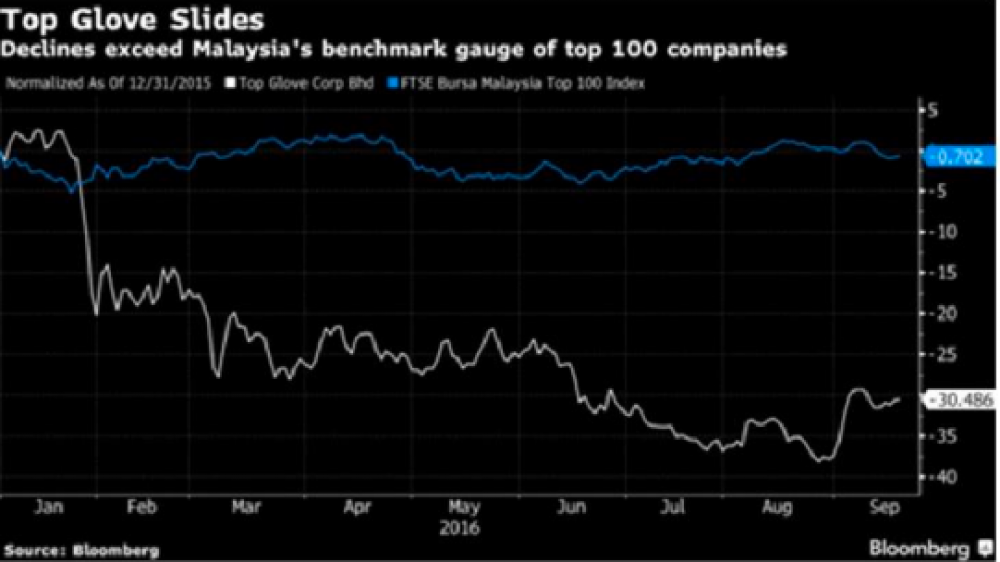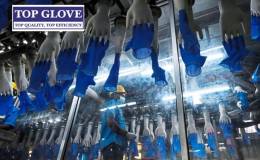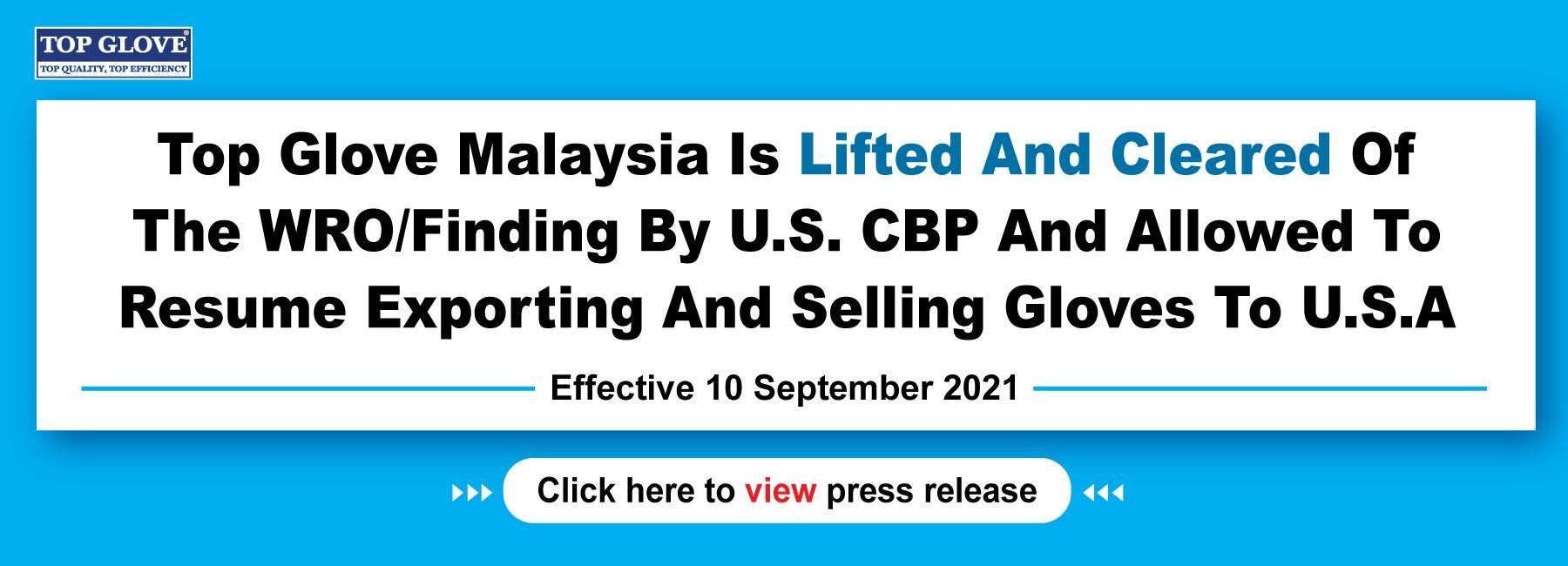WORLD’S TOP GLOVE MAKER SEEKS THAI EXPANSION ON MALAYSIA RISK
23 September 2016 / 12:09

Malaysia's Top Glove Corp. is focusing on Thai land to boost its production capacity as shortages of workers and water at home disrupts its expansion spree.
The company, which doubled its factory capacity in Thailand's Phuket this month, will increase its output size by 100 percent at another plant in Songkhla that borders Malaysia, Chairman Lim Wee Chai said in an interview Thursday. Favorable tax breaks in Thailand and the ease of hiring workers prompted the company's decision, he said
"We expanded a lot in Malaysia, but now we need to diversify because the risk is high," Lim, 58, said at the company's headquarters in Setia Alam, a town outside of Kuala Lumpur. “The Thai government is very supportive, they have an eight-year tax free incentive; they don't have foreign workers problem."
Top Glove, which commands a quarter of the world's glove market, has suffered from rising costs in Malaysia with the doubling of foreign worker levies this year and employment policy flip-flops that have disrupted production. Manufacturers had earlier this year warned the government that sudden changes in policies as the nation tries to cut reliance on overseas labor ate threatening businesses and jobs. The Southeast Asian country is the world's fifth-largest natural rubber producer with gloves forming the bulk of rubber product exports.
Malaysia suspended the recruitment of overseas workers in February, only to lift the freeze partially on new foreign labor hires to four sectors including manufacturing in May. Still, the country can't continue to increase its intake of foreign labor, according to Mah Siew Keong, the plantation industries and commodities minister on Tuesday. The ministry, which oversees the rubber sector, is instead seeking incentives for more mechanization to cut reliance on foreign labor.
Top Glove has 22 glove factories in Malaysia, two in Thailand and one in China, with a combined production capacity of more than 46 billion pieces per annum.



-cropped.jpg)



.jpg)
 (1).jpg)

.png)
.png)
.png)

.png)
.png)
.png)





